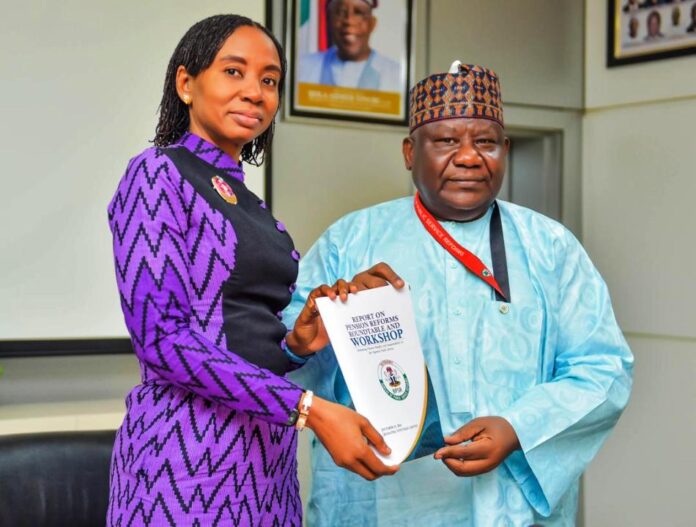Abuja, Nigeria – The Bureau of Public Service Reforms (BPSR) and the National Pension Commission (PenCom) have announced plans to improve pension management and ensure a smoother transition for retiring public servants in Nigeria.
This development was revealed in a statement issued on Thursday by Aliyu Umar, Head of Strategic Communication at the BPSR.
The announcement came during a courtesy visit from BPSR to PenCom in Abuja on Wednesday, where both agencies engaged in discussions aimed at bridging existing gaps in Nigeria’s pension system.
The Director-General of BPSR, Dasuki Arabi, emphasized the importance of ongoing reforms within Nigeria’s pension system.
“The management of the pension of retirees in the category that falls within the purview of the National Pension Commission is quite sensitive and enormous,” Arabi said.
He further highlighted the challenges faced by the pension system prior to the creation of PenCom in 2004, particularly an unsustainable defined benefits scheme that led to delays and the accumulation of pension arrears.
Arabi also noted BPSR’s pivotal role in advocating for the adoption of the Contributory Pension Scheme (CPS), which replaced the previous system.
“The CPS is designed to ensure that both employees and employers contribute to pension funds, ensuring a more sustainable pension system,” he explained.
Arabi also referenced BPSR’s efforts in organizing forums and roundtable discussions to address emerging challenges in the pension sector.
PenCom’s Director-General, Omolola Oloworaran, emphasized the need for continuous reform to address the emerging challenges in the pension system. She noted that, despite early successes, new obstacles have surfaced, particularly in pension disbursements and the integration of technology.
“We have started reaping another set of problems and challenges around pension administration and pension management in Nigeria,” she said, underscoring the evolving demands of the sector.
A central focus of the discussions was the potential integration of PenCom’s pension system with the Integrated Payroll and Personnel Information System (IPPIS), a government initiative designed to streamline personnel and payroll data management.
“How do we further deepen the integration of this scheme with IPPIS? I recall when we crafted IPPIS, we have that door that says immediately you are retiring, you’ll be moved from IPPIS salary payment to pension directly, and the documentation will be done automatically, electronically, without using pen, paper, and barrel,” Oloworaran said.
Oloworaran also advocated for a more comprehensive approach to training civil servants ahead of retirement to address the alarming statistic that over 40 percent of public servants die shortly after leaving service.
She stressed the importance of preparing workers well before retirement, adding, “We’ll be looking forward to see how we can integrate our processes, how we can learn from each other, so that we have a more robust curriculum, and to see how we can train people quite a number of years ahead of their retirement, so that four years to their retirement, you have selected the field you want to join, and by the time you are exiting, you have a place to go.”
“The survey that we did about four years ago indicated that more than 40 percent of civil servants lose their lives after retirement. That means that we need to find solutions to this problem by drawing back the days for pre-retirement trainees, so that they learn one or two trades or fields they want to join before they exit,” she concluded.
Signed
Aliyu Umar
Head of Strategic Communication, BPSR






